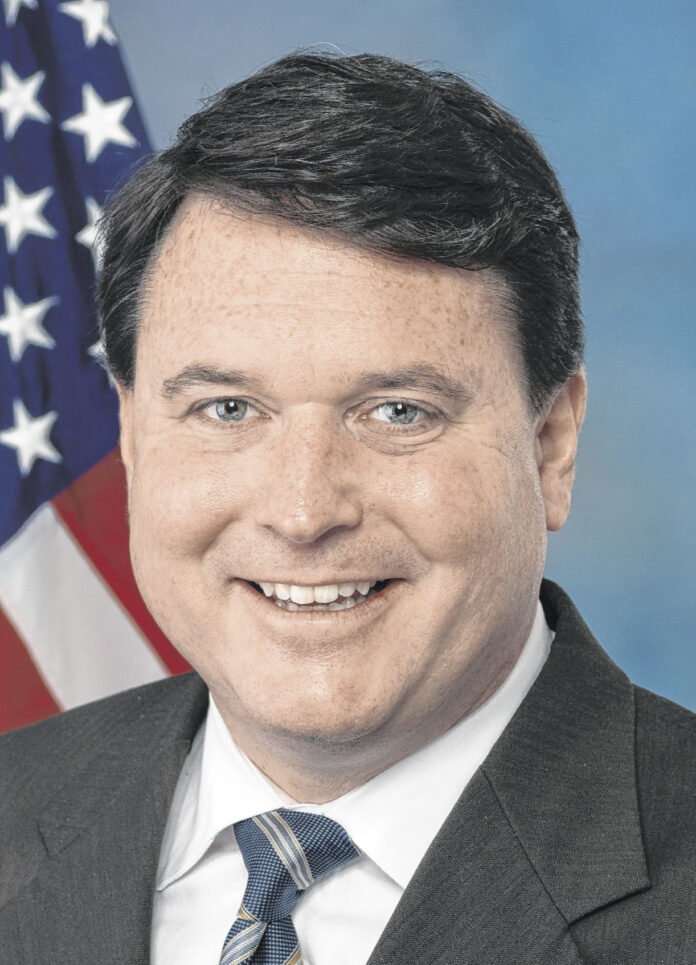When I took office, I vowed to continue Indiana’s fight to hold those responsible for turbocharging the opioid epidemic accountable.
The scourge of addiction has devastated communities in Indiana and across the nation, claiming far too many lives. We owe it to Hoosier families to hold those responsible for this crisis accountable and deliver the justice they deserve.
That’s why I continue to aggressively and tirelessly prosecute cases to hold corporations accountable who put greed over Hoosiers’ health. Recently, we diligently and creatively worked to achieve a nationwide settlement with several of these companies in the amount of $26 billion. Indiana’s share could be more than half a billion dollars, if local elected leaders agree to have their communities participate. The majority of Indiana communities are participating— more than 580 to be clear. However, your community is not.
This settlement will bring a significant amount of money to impacted communities in Indiana to support programs that will make a difference for those struggling with addiction. We worked hand-in-hand with your elected members of the Indiana General Assembly to create a statutory structure to most efficiently distribute this funding to local communities ensuring these dollars make a substantial and meaningful impact by supporting local law enforcement efforts, drug task forces, regional treatment hubs, and early intervention and crisis support, among other important programs. Earlier this year, all-too-rare bipartisan legislation was passed to do just that – a long-overdue victory for all Hoosiers. The statute allowed legislators to bring local community priorities into the statewide plan, meeting an important requirement to participate in the master settlement agreement.
The statutory structure was set up so that some of Indiana’s share goes directly to local communities. I was a strong advocate for this approach because I believe that you and the local leaders you elected know best how that money should be used. I pledge to work with members of the General Assembly in the next session to develop future legislation that will articulate the distribution mechanism in more detail before the first payments arrive so that local officials clearly control their share of the settlement funds. I encourage local leaders to reach out to Gov. Eric Holcomb and Lt. Gov. Suzanne Crouch to also commit, as I have, to get allotted funds directly to local communities without state interference. At the very least, a 50/50 split is inherently fair.
Unfortunately, local leaders in communities like Franklin and Greenwood have been advised by their private attorneys, most of whom do not live or work in the communities they represent, to opt out of this once-in-a-generation deal. However, as the final pieces of this massive settlement came together, it has become apparent that your local leaders were probably not provided full information about the ramifications of opting out of the state plan and the loss of financial benefits for your community that would result from that decision. Lawyers hired by some communities sought to prevent the Accelerate Indiana Municipalities (AIM) from working with me to answer questions about the settlement and communicate with local elected leaders. But they can’t keep me from communicating with you — the voters and taxpayers.
By opting out, your local elected officials voted to not participate in a settlement with guaranteed money to continue moving forward with their own lawsuit. Outside attorneys from Cohen and Malad, Farrell Law, and Powell and Majestro advised your officials to opt out in hopes of getting the state and your non-litigating neighboring communities to agree to pay a share of up to 33% of the settlement in attorney fees.
The upshot is this: The master settlement agreement says that opting out of the state settlement will cut the amount of money coming to the state and local communities in half — possibly $250 million — severely limiting the number of programs that can be supported to help those in need right now.
Opting out of the state settlement could possibly leave your community to fight against massive corporations and their lawyers for years, or even decades, with no guarantee of any payout. If these cases even make it to trial, the litigation costs and attorney fees will surely be so high that paying them would eat up much of the funding the community is awarded.
However, if a community opts back into the state plan, the national settlement provides a separate fund to pay these outside, private attorney fees instead of your community.
We can’t allow attorney fee concerns to override the importance of those in need.
My fellow Hoosiers, I want to share what is at stake here before it is too late. Half a billion dollars in funds that will save lives and make a significant impact in our efforts to stop the ravaging of our communities could be lost if the communities who’ve opted out of the state’s opioid settlement don’t quickly change their course.
Franklin and Greenwood have the ability to opt back into the state’s settlement – if they do so immediately. If you care about holding greedy corporations accountable, and if you care about helping those in need in your community and not lining lawyers’ pockets, and if you want to ensure Indiana doesn’t lose out on half a billion dollars to lift up those in need who are struggling with addiction, please make sure local leaders on the Franklin City Council and Greenwood Common Council opt your community back into the state’s opioid settlement fund. Time is of the essence.
You can reach your local leaders here:
City of Franklin Common Council
Opt-in Deadline: Today
Phone: 317-736-3602
Greenwood Common Council
Opt-in Deadline: Aug. 27
Phone: 317-517-1098
Todd Rokita is Indiana’s attorney general. Send comments to [email protected].




